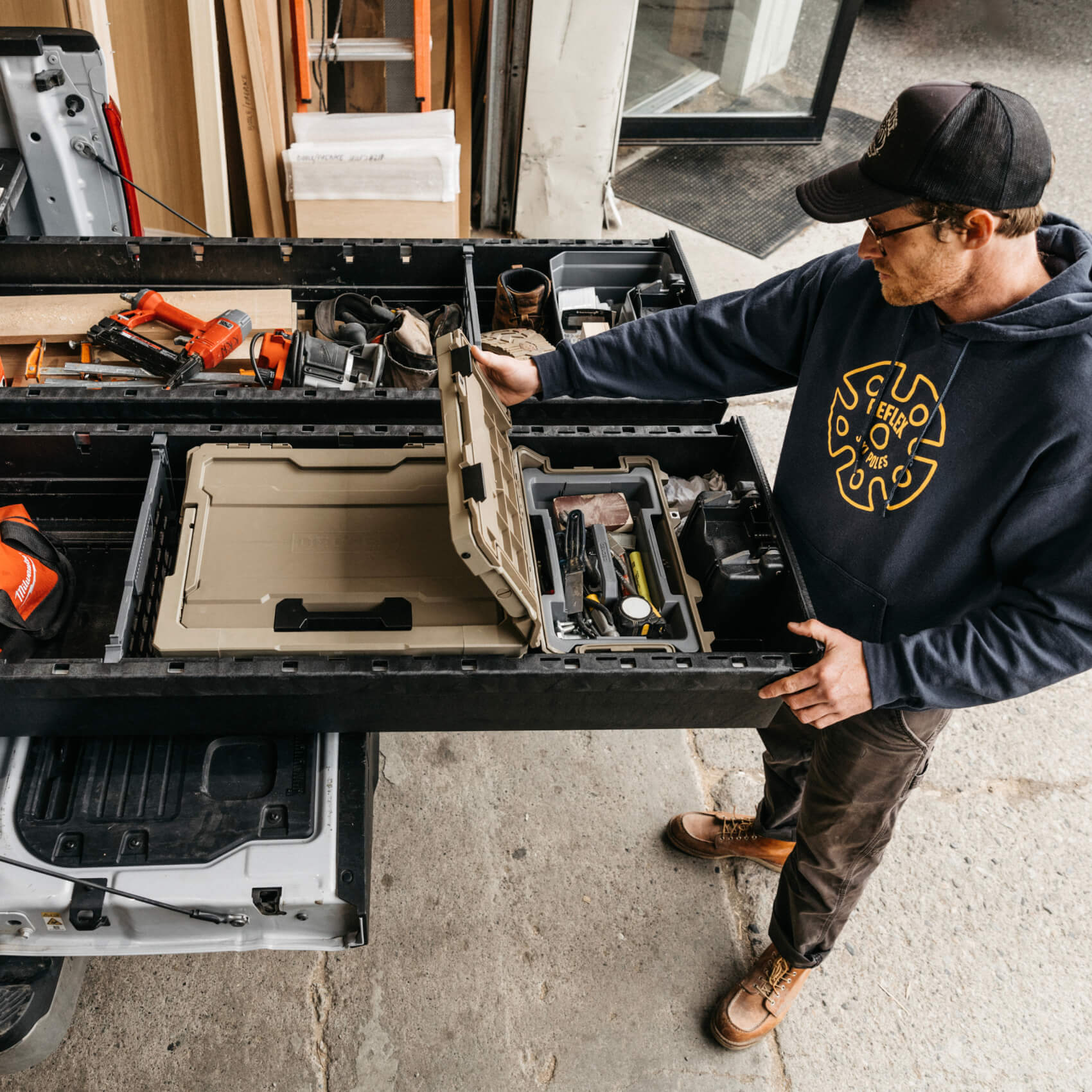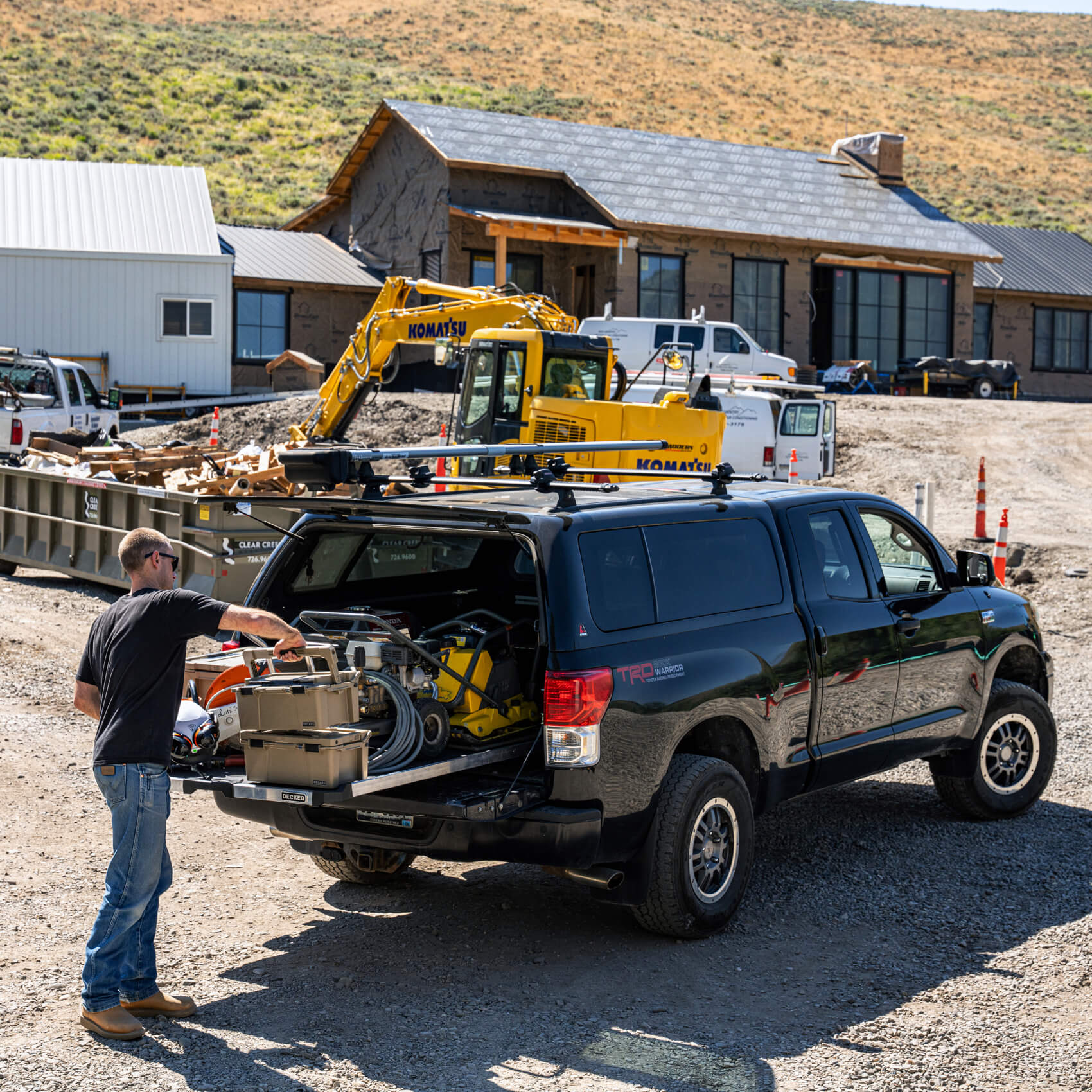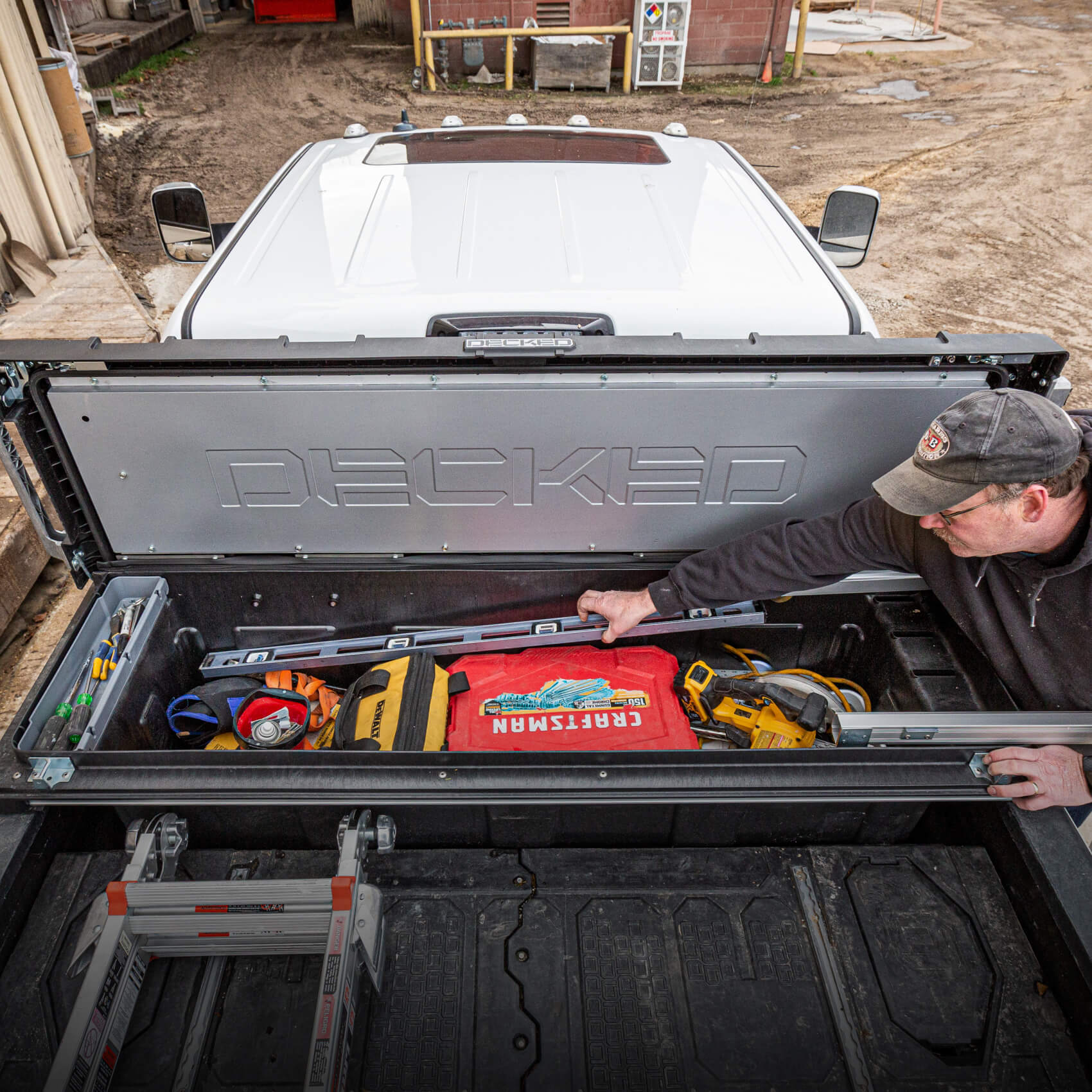Toolboxes - the Ideal Organizational Solution
Toolboxes can help you to keep your work area organized and prevent any misplacing of tools or materials. In the workplace, organization is crucial to efficiency and productivity. A toolbox can help you to manage your tools in one place and make them easily accessible when you need them. This can also reduce the time it takes to find a specific tool or equipment, as you know exactly where it is.
Portability
The portability of a toolbox allows for easy transportation of your tools and materials. This can be incredibly useful when working on a project in multiple locations or if you need to get your tools to a job site.
Many toolboxes come with wheels, which can make it even easier to move them around. Additionally, toolboxes with handles can make it easier to carry them. This portability can be a great way to save time and ensure your tools are always where you need them.
Durable Storage
Toolboxes keep your tools safe and secure. Many toolboxes, such as steel or aluminum, are made of durable materials and are designed to withstand the harshest working conditions. This makes them an ideal choice for those who work in harsh environments or who need to store their tools securely. Additionally, some toolboxes come with locks, providing extra security for your tools.

Types of Toolboxes
Truck Toolboxes
Truck toolboxes are designed to fit the beds of pickup trucks, and typically behind the cab. These types of toolboxes are great for when you need to store and transport larger tools and equipment, as they have a lot of space. Typically, truck toolboxes are made of aluminum, as it is both lightweight and durable. Many of them also come with a lockable lid, so your tools and equipment stay secure while traveling. Additionally, truck toolboxes can come in various sizes and shapes, so you can find one that fits your truck perfectly.
Underbed Toolboxes
Underbed toolboxes fit underneath the bed of a pickup truck. These types of toolboxes are great for those who need to store a large number of tools and equipment, but don’t have the space for a truck toolbox. Underbed toolboxes come in various sizes and shapes, and are typically made of aluminum for durability and lightweight portability. Many underbed toolboxes also come with a lockable lid, so your tools and equipment stay secure while traveling.

Portable Toolboxes
Portable toolboxes are great for those who need to store many tools and equipment, but don’t have the space for a truck or underbed toolbox. Portable toolboxes come in various sizes and shapes, typically made of aluminum or plastic for durability and lightweight portability. Many of them also come with a lockable lid, so your tools and equipment stay secure while you are traveling. Additionally, many portable toolboxes feature a handle for easy transportation from one place to another.
Crossover Toolboxes
Crossover toolboxes are designed for crossover vehicles, such as SUVs and vans. These toolboxes are great for those who need to store many tools and equipment but don’t have the space for a truck or underbed toolbox. Crossover toolboxes come in various sizes and shapes, typically made of aluminum or plastic for durability and lightweight portability. Many of them also come with a lockable lid, so your tools and equipment stay secure while traveling. Additionally, many crossover toolboxes are equipped with a handle to be easily transported.

Choosing the Right Toolbox
Consider Your Needs
Before choosing the right toolbox, you need to consider your needs. Ask yourself what you'll be using it for, how much space you'll need, and how much weight you'll carry. Do you need to take your tools from job to job, or will you keep your toolbox in one place? If you move it around, you'll need something lightweight and portable. On the other hand, if you plan to keep it in one place, you'll want something more durable and with more storage capacity.
Compatibility
When selecting a toolbox, ensure it's compatible with your existing tools. Many different sizes and types of toolboxes are available, from basic plastic models to advanced steel ones. You'll also want to ensure that the toolbox you choose is compatible with the tools you store in it. Look for toolboxes with adjustable dividers or compartments to ensure your tools fit and that the box itself is sturdy enough to support the weight of your tools.

Storage Capacity
The storage capacity of your toolbox is another essential factor to consider. If you plan to store many tools, you'll need a toolbox with plenty of space. If you only store a few items, you can get away with a smaller model. You should also think about how you plan to use the toolbox. If you need to store larger items, look for toolboxes with drawers or shelves that provide more space. On the other hand, if you need to store smaller items, look for toolboxes with compartments or slots that can keep them organized.
Durability
The durability of your toolbox is another important factor to consider. You'll want to choose a toolbox that can withstand everyday use's wear and tear. Metal toolboxes are generally more durable than plastic ones, but plastic toolboxes are typically more durable than standard models. Consider your needs and the environment you'll be using the toolbox in before making a decision.

Using a Toolbox
Preparing Your Toolbox
Before you start using your toolbox, it’s essential to prepare it properly. Proper preparation includes ensuring all the parts are together and of good quality. You can buy toolboxes from various sources, including hardware stores, online retailers, and specialty toolbox shops. Researching the options and choosing a quality toolbox that will meet your needs is important. Inspecting your toolbox for any defects or damage before use is critical.
Organizing Your Tools
Once you have your toolbox, it’s time to start organizing your tools. Start by creating a plan for how you want to organize your tools. This could include separating tools by type, size, or usage. You can also group tools into categories such as hand, power, and garden tools. Additionally, you can use dividers or organizers to help keep your tools organized. Finally, label each tool or compartment to quickly find the tool you need.

Maintaining Your Toolbox
Taking care of your toolbox is essential for maintaining a safe, organized workspace. Regular cleaning and maintenance will help your toolbox last longer and remain in good condition. Take some time to inspect and clean your toolbox regularly. Check for any damage or defects and clean off any dirt or debris. Additionally, oil any moving parts on your toolbox to keep it functioning correctly.
Security Features
When it comes to toolboxes, security should be a top priority. Whether you're looking for a toolbox for a professional environs or your own home garage, make sure that your tools are safe from theft and damage. Many toolboxes are designed with security in mind, from heavy-duty locks to high-tech locking mechanisms. High-end toolboxes often have an integrated locking system keyed to the user, so only they can access the contents. If you're looking for added security, consider a toolbox with a combination lock that requires a unique combination to open.

Weather Protection
Weather protection is an important toolbox feature since extreme temperatures and humidity can damage the tools inside. Many toolboxes are waterproof or water-resistant, helping to protect the tools from moisture or rain. Some toolboxes also have sealed lids or gaskets to remove dust, dirt, and other debris. If you're looking for a toolbox for outdoor use, consider one made from heavy-duty metal or plastic, which can stand up to the elements.
Durability
Durability is another important factor to consider when shopping for a toolbox. You'll want a toolbox that can withstand the wear and tear of everyday use. Many toolboxes are made from heavy-duty materials such as metal, plastic, and wood, which can handle heavy loads and regular use. Look for a toolbox with reinforced corners and sturdy construction to ensure it can withstand the rigors of everyday use.
Organizational Inserts
When it comes to toolboxes, organization is key. The proper organizational inserts allow you to create an efficient and organized workspace. Whether you’re looking for drawers to store your tools, racks to hang them up, or shelves to keep them off the floor, you’ll find a wide selection of organizational inserts that can be adapted to fit any toolbox.
Organizational inserts are available in various materials, from plastic to steel. They can be custom-made to fit any size toolbox and come in many colors and styles. Organizational inserts are perfect for those who want to keep their tools organized and easily accessible.
Tie-Down Straps
Tie-down straps are great for keeping your tools in place and preventing them from moving around. They come in several sizes and can secure tools within a toolbox. Tie-down straps are durable and come in various colors and styles. Whether you’re looking for a heavy-duty or more decorative strap, you’ll find a wide selection of tie-down straps.
Locking Mechanisms
Secure your tools and keep them safe with a locking mechanism. Lockable toolboxes come with various locking mechanisms, from standard locks to combination locks, to ensure your tools are always secure. Many toolboxes also come with additional features like keyless entry, which allows you to access your tools without a key. Locking mechanisms are essential to look for when shopping for a toolbox to ensure your tools are always safe and secure.

Toolbox Purchasing Options
Online Retailers
The internet is the most accessible place to buy toolboxes. Many online retailers such as StrictlyToolBoxes.com, Vidmar, and Sonic Tools USA offer a wide selection of toolboxes for any budget. Many of these retailers also offer free shipping, making getting the perfect toolbox for your needs easier. Additionally, you can often find reviews from other customers, making it easier to decide which toolbox is right for you.
Big-Box Stores
For those looking for a more convenient shopping experience, many big-box stores such as Ace Hardware, Craftsman, and Viper Tool Storage carry a wide selection of toolboxes. These stores typically offer competitive prices and easy returns, making it an easy and convenient shopping experience. Many of these stores also have knowledgeable staff to help you choose the best toolbox.
Local Hardware Stores
Local hardware stores are an excellent option for a more personalized shopping experience. You can find a wide selection of toolboxes at these stores, often at competitive prices. Additionally, many local hardware stores have knowledgeable staff to help you find the right toolbox for your needs. Furthermore, you can often find reviews from other customers, making it easier to make an informed decision.
References
- Rockin Toolboxes. Home
- Strictly Tool Boxes. StrictlyToolBoxes.com – Professional Tool Boxes | Tool Vault | Montezuma
- Charles S. Your Professional Tool Box Superstore | Tool Storage
- Harbor Freight. Tool Boxes - Harbor Freight Tools
- Vidmar. Toolboxes
- Ace Hardware. Portable & Toolboxes on Wheels at Ace Hardware
- Sonic Tools. Toolboxes
- Stanley Tools. Toolboxes | STANLEY® Tools
- Matco Tools. Tool Boxes and Storage | Service. Trust. Results.®
- Dewalt. Toolboxes | DEWALT
- Plano. Toolboxes | Power Tool & Shop Storage
- Craftsman. Toolboxes | CRAFTSMAN
- Viper Tool Storage. TOOL BOXES – Viper Tool Storage
- Popular Mechanics (2023, Jan 05). The Best Small Toolboxes to Stay Organized
- This Old House Reviews Team (2020, Dec 09). The 6 Best Toolboxes (2023 Review)





